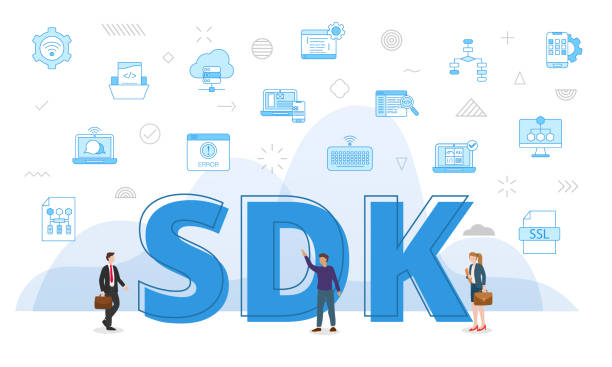
One term that comes up a lot when we talk about software development is the Software Development Kit (SDK). However, what is an SDK exactly, and why is it so important in the software development industry?
An SDK is essentially a full-featured toolkit that gives developers the tools, documentation, libraries, and APIs they need to create apps for particular platforms or services. This article will examine SDKs in detail, dissecting their constituent parts, examining the various varieties out there, and emphasizing the advantages they provide for developers.
Furthermore, You will have a clear knowledge of why SDKs are essential tools that guarantee the construction of reliable and effective apps, improve productivity, and streamline the development process by the end of this session.
Components that make up an SDK
SDKs include some crucial components that improve the efficiency and flow of the development process:
- Libraries: Developers can utilize these sets of prewritten code to accomplish common tasks without having to start from zero when writing code.
- APIs: APIs, or application programming interfaces, provide communication between various software components. APIs are frequently included in Software Development Kits to make interacting with the platform or service easier.
- Documentation: For developers to grasp how to utilize the Software development Kit efficiently, thorough documentation is essential. It consists of instructions, lessons, and background information.
- Integrated Development Environment (IDE): Certain SDKs include associated IDEs, which offer a full environment for testing, debugging, and coding.
- Testing Tools and Compilers: With the use of these tools, developers may test their apps and create executable programs from their code.
Types of SDKs
Different types of SDKs are available to meet distinct development demands:
- Platform-Specific SDKs: These SDKs, like the Android SDK for Android app development and the iOS SDK for iOS app development, are made for particular platforms.
- Language-Specific SDKs: These SDKs are tailored for specific programming languages, like Java SDK for Java development and .NET SDK for .NET development.
- Service-Specific SDKs: These SDKs, like the AWS SDK for Amazon Web Services and the Google Cloud SDK for Google Cloud Platform, are made for certain services.
How to Use an SDK
Installing and developing with an SDK requires multiple steps:
- Installation: Installing the SDK on your development computer is the first step. Typically, to achieve this, download the SDK package and adhere to the installation guidelines.
- Configuration: You must set up the Indian offshore software development companies to function with the development environment after installation. Configuring pathways and environment variables may be part of this.
- Development Process: After installing and configuring the SDK, you may begin working on your application. Writing code, utilizing the SDK’s libraries and APIs, and testing your application are all part of this process.
Advantages of Using SDKs
SDKs are incredibly useful tools for developers because of their many benefits.
- Speed: Tools and pre-built components are provided by Software Development Kits to expedite the development process.
- Consistency: Standardized components are used by SDKs to assist preserve consistency between various AI mobile app developers in New York City.
- Support and Community: Numerous SDKs have vibrant communities and a wealth of support, offering tools and guidance to developers.
SDK vs. API
Although they are linked, SDKs and APIs have distinct functions.
- SDK: A software development kit is an all-inclusive set of tools that developers need to create software for a certain platform or service.
- API: A collection of guidelines and procedures known as an application programming interface facilitates communication between various software components.
Popular SDK Examples
Developers frequently rely on a variety of popular SDKs tailored to different purposes. For mobile development, the Android SDK and iOS SDK are widely used. In the realm of web development, the React SDK and Angular SDK are common choices.
Finally, When it comes to cloud services, developers often turn to the AWS SDK and Azure SDK. These SDKs provide the necessary tools and resources to streamline the development process across different platforms and services.
The Best Ways to Use SDKs
Use these best practices to make the most of an SDK:
- Read the Documentation: Read the documentation that comes with the SDK first, every time. It has useful advice on how to make the most out of the SDK.
- Keep SDKs Updated: Update your SDKs frequently to take advantage of the newest features and security updates.
- Security: To safeguard your application and data, heed security best practices and guidelines.
Conclusion
To sum up, software development kits, or SDKs, are essential resources that greatly streamline the software development process. They provide developers with an extensive collection of parts, instruments, and thorough instructions, allowing them to create reliable and effective apps.
Developers can save a significant amount of time by using SDKs, as these kits offer pre-built components that remove the need to build fundamental code from the start. Because standardized components are used, this not only expedites the development process but also guarantees consistency across various applications.
Furthermore, SDKs provide access to helpful support materials and vibrant communities, which can be very beneficial for troubleshooting and advice-seeking. Using SDKs in your development process is a wise choice if you’re a developer looking to optimize your workflow.